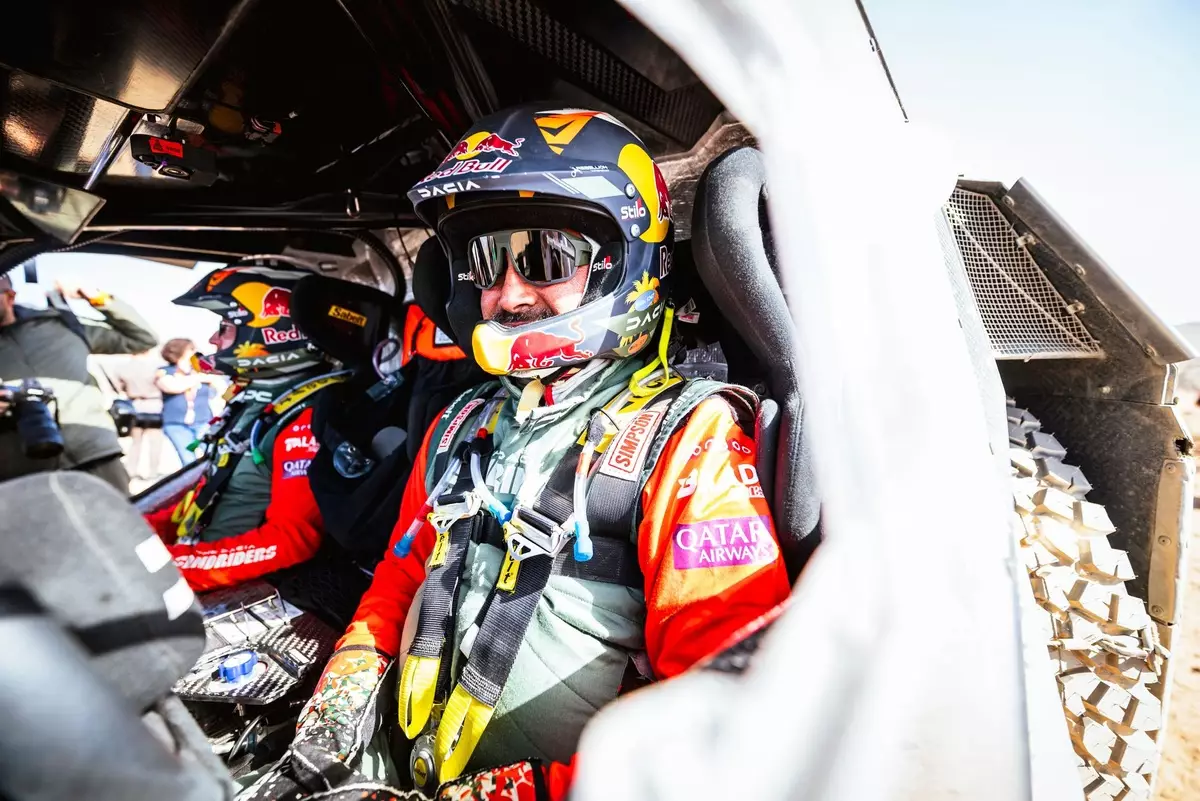The world of motorsport is replete with high-stakes drama, intense rivalries, and regulatory controversies. This year’s Dakar Rally has been no exception, especially highlighted by Dacia driver Nasser Al-Attiyah’s vocal criticism of the FIA’s decision to bar fellow competitor Carlos Sainz Sr. from continuing in the race. This decision, framed on safety grounds after both Sainz and teammate Sebastien Loeb sustained damages to their vehicles, has raised serious questions about the FIA’s regulations and the inherent spirit of competition that rallies like Dakar strive to foster.
The FIA (Fédération Internationale de l’Automobile) operates with a clear mandate: ensuring the safety of all participants involved in various racing events. Their intervention to disallow repairs to roll cages during the Dakar Rally aims to maintain a level of safety in an environment known for its unpredictable nature. However, this very stance has come under fire. Al-Attiyah contends that the FIA’s unwillingness to let teams repair critical race components, such as chassis, is counterproductive. He reiterated that rallies, by their very nature, should foster resilience, allowing teams to correct emergent technical faults when possible.
Al-Attiyah’s argument raises an essential point concerning the nature of rally racing contrasted to more regimented forms of motorsport like Formula 1. In rally racing, the unpredictability and the ability to adapt become crucial elements of success. The FIA’s stringent enforcement of safety rules could be seen as strangling the competitive spirit which lies at the heart of rally competitions.
The abrupt exclusion of formidable rivals like Sainz and Loeb from the rally removed significant competitors from the mix. With the departure of these seasoned professionals, Al-Attiyah’s remaining competition now boils down to Mattias Ekstrom of Ford and the Toyota duo Henk Lategan and Yazeed Al-Rajhi. As a five-time winner of the Dakar Rally, Al-Attiyah’s perspective is not just that of a competitor, but as a steward of the sport’s competitive integrity.
He lamented the lack of clarity regarding the rules that led to the FIA’s ruling and expressed his frustration at being deprived of racing against top-tier talent such as Sainz and Loeb. The reality is that the rally, without its marquee drivers, risks losing a portion of its allure. Fans and participants alike appreciate the unpredictable nature of who might emerge victorious, and the absence of these skilled drivers detracts from the event’s overall excitement.
In addition to the FIA’s decision regarding Sainz, Al-Attiyah faced another difficult situation with a time penalty that he deemed unjust. After losing a spare wheel during Stage 5, he was slapped with a ten-minute penalty which ultimately cost him a potential victory by just a second. Al-Attiyah’s response to this penalty echoes a sentiment shared by many in competitive sports: the desire for fairness and clarity in rules enforcement.
With penalties being a standard facet of racing, the question often lies in their enforcement criteria. When such penalties seem disproportionate to the offense, especially in high-stakes settings like Dakar, they engender dissatisfaction among competitors and fans alike. Al-Attiyah’s intention to raise this concern with the FIA’s president illustrates the necessity for ongoing dialogue surrounding fairness in racing, particularly when minor infractions may lead to outsized penalties.
A Bridge to the Future
Currently, Al-Attiyah finds himself in the fourth position, trailing behind Lategan while facing the daunting task of keeping a close eye on the competition. Despite the challenges ahead—with a significant gap separating him from the lead—his confidence remains unshaken. Al-Attiyah’s resolve speaks to the broader narrative of tenacity within motorsport: that no matter the impediments, the drive to compete and win will always prevail.
With six stages left and the Dakar Rally unfolding, the juxtaposition of strict regulations and the competitive spirit continues to create tension. For audiences, the ongoing saga casts a shadow over the sporting integrity, but for competitors like Al-Attiyah, it may simply be yet another hurdle on the pursuit of victory. As the rally progresses, one can only hope that the lessons learned will lead to a more balanced approach to competition without compromising safety or excitement in future events.


Leave a Reply